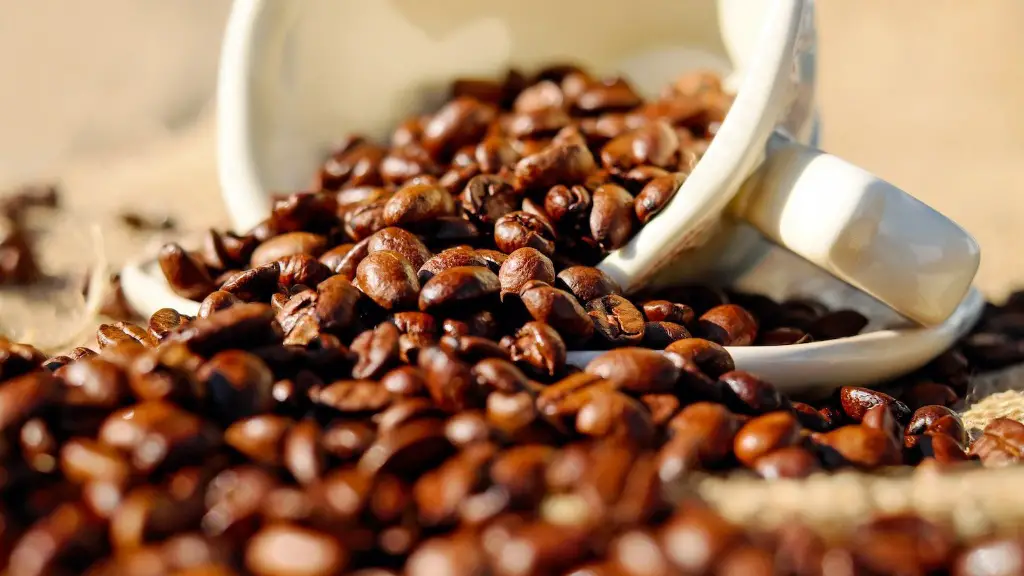Caffeine has gained a reputation in recent years as an antidote to fatigue, but can drinking coffee actually make you more tired? This is an issue of much debate in the scientific community, and various pieces of evidence suggest both sides of the argument.
The effects of caffeine on the human body are well documented, and the primary benefit of its consumption is the stimulation of the central nervous system. This leads to an increase in alertness and concentration that can last for many hours after drinking coffee.
However, some experts believe that coffee does not necessarily make you more alert but instead disrupts your normal sleep patterns. It has been observed that high levels of caffeine can make it difficult for people to fall asleep and stay asleep. When sleep is disrupted, fatigue can set in the next day, making it harder to stay awake and alert during the day.
Research has also indicated that caffeine can increase feelings of stress and anxiety, leading to a reduction in energy and an increase in tiredness. This is because when caffeine is consumed, it increases levels of cortisol in the body, which is a hormone that helps regulate energy levels. High cortisol levels can lead to physical and mental fatigue.
Recent studies have also suggested that caffeine can interfere with the body’s internal clock by resetting it, resulting in a decrease in overall alertness and an increase in tiredness. As well as disrupting the body’s natural sleep-wake cycle, this can also lead to feelings of fatigue.
So, can drinking coffee make you more tired? While there are certainly benefits to drinking coffee, the evidence suggests that it can also have negative effects. It is important to remember that everyone is different and what works for one person may not work for another.
Factors That Affect the Tiredness Caused by Coffee
There are many factors that can affect the impact of coffee on tiredness. Some individuals may be more sensitive to caffeine than others, meaning they may experience more pronounced effects of coffee, including feeling more tired. Also, the time of day that you drink coffee may also affect your sleep cycles and energy levels.
It is thought that the half-life of caffeine is around four to six hours, meaning the effects of coffee will be felt for this amount of time before gradually wearing off. So, if coffee is drunk before bedtime, it may lead to disrupted sleep and an increase in fatigue the next day.
Other things that may affect the tiredness caused by coffee include the amount of caffeine consumed, the quality of the coffee, and the type of coffee bean used. Darker roasted beans tend to contain more caffeine, so if you are particularly sensitive to caffeine you may want to avoid these varieties.
Generally speaking, it is a good idea to limit your caffeine intake and to avoid drinking coffee late at night. This will likely reduce the likelihood of feeling more tired the next day.
Benefits of Drinking Coffee
Despite the potential negative side-effects of drinking coffee, there are still many benefits associated with it. The stimulation of the central nervous system can help to improve mental clarity and alertness, and it can also increase focus and productivity.
Coffee also contains antioxidants which can help to protect the body from damage caused by free radicals. In addition, it can boost immunity, improve digestion, and reduce inflammation.
Coffee has also been linked to a range of other health benefits, including improved heart health, protection against certain types of cancer, and a reduced risk of developing type 2 diabetes.
So, while it is important to be aware of the potential downsides, it is also important to remember all of the benefits associated with drinking coffee. As long as it is drunk in moderation and at the right times of day, it can be a great way to boost your energy levels and overall wellbeing.
Alternatives to Drinking Coffee
If you are concerned about the potential risks of drinking coffee, there are a few alternatives that you can try. One option is to drink green tea instead. Green tea contains caffeine, but in much lower doses than coffee, so it is less likely to interfere with your sleep and energy levels.
There are also some herbal teas that can help to boost energy levels and alertness. These include ginseng tea, matcha tea, and turmeric tea. These teas are much lower in caffeine than regular tea and can therefore be drunk without fear of disrupting your sleep.
Another option is to take an energy supplement, such as ginseng or guarana. These supplements are thought to reduce fatigue and improve mental alertness and concentration.
Finally, if you are looking for a boost of energy that does not involve caffeine, you could try exercising. Exercise can help to improve energy levels and overall wellbeing, so it is worth considering if you are looking for an alternative to drinking coffee.
Risks of Drinking Too Much Coffee
Despite the potential benefits of drinking coffee, it is important to be aware of the risks of drinking too much. As with anything, moderation is key, and drinking too much coffee can lead to some unpleasant side-effects, such as an increased risk of anxiety and restlessness.
Also, if coffee is consumed too late in the day, it can still interfere with sleep patterns, leading to feelings of fatigue the next day. In addition, drinking large amounts of coffee can also lead to dehydration, so it is important to stay hydrated if you drink it regularly.
Coffee can also interact with certain medications, so it is important to check with your doctor before drinking it if you are taking any medications. Also, pregnant women and those who are breastfeeding should be aware that coffee can pass through the placenta and into breastmilk, so it is best to avoid it if possible.
Conclusion
In conclusion, it is clear that the effects of coffee on tiredness are complex and can vary from person to person. While it may provide an energy boost for some people, for others it can lead to feelings of fatigue.
It is therefore important to be aware of all the potential risks and benefits associated with drinking coffee and to make sure that it is consumed in moderation.
Recap
Overall, drinking coffee can have both positive and negative effects on tiredness. It may provide an energy boost for some people, but for others it can disrupt normal sleep patterns and lead to feelings of fatigue. Additionally, drinking too much coffee can lead to a range of unpleasant side-effects.
It is therefore important to be aware of all the potential risks and benefits associated with drinking coffee and to make sure that it is consumed in moderation. Other alternatives to caffeine, such as herbal teas and energy supplements can also be explored if you are looking for a boost of energy without the risks associated with coffee.





